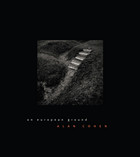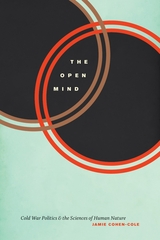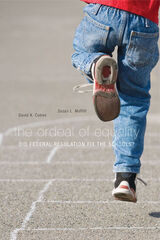260 books by Cohen and 7
start with O
260 books by Cohen and 7
260 books by Cohen
7 start with O start with O
7 start with O start with O

Of Giants
Sex, Monsters, And The Middle Ages
Jeffrey Jerome Cohen
University of Minnesota Press, 1999

On European Ground
Alan Cohen
University of Chicago Press, 2001
A profound visual meditation on the trauma that scars twentieth-century Europe, Alan Cohen's On European Ground considers the battlefields of World War I, the Nazi death camps, and the Berlin Wall, and records the distance between what we remember about these places and what we can still observe in them today. By walking these sites and photographing the very ground in which their history has dissolved, Cohen opens a space for reflection on their complex gravity and legacy.
Cohen's images achieve a solemn beauty even as they engage history at its most topical. Pictures of trenches and bunkers at the battlefields of Somme and Verdun explore the tension between the violence of the past and the inscrutability of its remnants. Photographs from the grounds of Dachau and Auschwitz solicit a provocative dialogue between the ordinariness of these sites today and their haunting memory. They teach us, as the New Art Examiner notes, "that the living perceptual connection to the Holocaust is vanishing." Images of the Berlin Wall show only the footprint of the barricade that once separated two hostile ideologies. They record the physical erosion and looming disappearance of the Wall while capturing its reappearance as a memorialized abstraction.
Accompanying the photographs in On European Ground are essays by Sander Gilman and Jonathan Bordo, as well as an interview with Cohen by critic Roberta Smith of the New York Times. The essays present both an introduction to and aesthetic analysis of Cohen's work, while the interview discusses the intractable problems of history and memory that his photographs so uniquely capture.
Cohen's images achieve a solemn beauty even as they engage history at its most topical. Pictures of trenches and bunkers at the battlefields of Somme and Verdun explore the tension between the violence of the past and the inscrutability of its remnants. Photographs from the grounds of Dachau and Auschwitz solicit a provocative dialogue between the ordinariness of these sites today and their haunting memory. They teach us, as the New Art Examiner notes, "that the living perceptual connection to the Holocaust is vanishing." Images of the Berlin Wall show only the footprint of the barricade that once separated two hostile ideologies. They record the physical erosion and looming disappearance of the Wall while capturing its reappearance as a memorialized abstraction.
Accompanying the photographs in On European Ground are essays by Sander Gilman and Jonathan Bordo, as well as an interview with Cohen by critic Roberta Smith of the New York Times. The essays present both an introduction to and aesthetic analysis of Cohen's work, while the interview discusses the intractable problems of history and memory that his photographs so uniquely capture.
[more]

On Learning to Heal
or, What Medicine Doesn't Know
Ed Cohen
Duke University Press, 2023
At thirteen, Ed Cohen was diagnosed with Crohn’s disease—a chronic, incurable condition that nearly killed him in his early twenties. At his diagnosis, his doctors told him that the best he could hope for would be periods of remission. Unfortunately, doctors never mentioned healing as a possibility. In On Learning to Heal, Cohen draws on fifty years of living with Crohn’s to consider how Western medicine’s turn from an “art of healing” toward a “science of medicine” deeply affects both medical practitioners and their patients. He demonstrates that although medicine can now offer many seemingly miraculous therapies, medicine is not and has never been the only way to enhance healing. Exploring his own path to healing, he argues that learning to heal requires us to desire and value healing as a vital possibility. With this book, Cohen advocates reviving healing’s role for all those whose lives are touched by illness.
[more]

On Obliteration
An Interview with Françoise Armengaud Concerning the Work of Sacha Sosno
Emmanuel Levinas
Diaphanes, 2019
Emmanuel Levinas’s interview with Françoise Armengaud in 1988 is one of the only statements we have from the philosopher, who became influential in various disciplines through his ethics that focuses on the fine arts specifically. Presented in English for the first time here, this interview brings us Levinas’s understanding of “obliteration” as an uncanny, disruptive, and even “unavailable” concept. Discussing the work of the French sculptor Sacha Sosno, Levinas parses the complex relationship between ethics and aesthetics, examining how they play out in artistic operations and practices. In doing so, he turns away from the “ease and lighthearted casualness of the beautiful” to shed light instead on the processes of material wear and tear and the traces of repair that go into the creation and maintenance of works of art, and which ultimately give them a profound uniqueness of presence. This evocative interview uncovers a hidden thread of aesthetic thinking in Levinas’s work and introduces a new way of looking at artistic practices in general.
[more]

The Open Mind
Cold War Politics and the Sciences of Human Nature
Jamie Cohen-Cole
University of Chicago Press, 2013
The Open Mind chronicles the development and promulgation of a scientific vision of the rational, creative, and autonomous self, demonstrating how this self became a defining feature of Cold War culture. Jamie Cohen-Cole illustrates how from 1945 to 1965 policy makers and social critics used the idea of an open-minded human nature to advance centrist politics. They reshaped intellectual culture and instigated nationwide educational reform that promoted more open, and indeed more human, minds. The new field of cognitive science was central to this project, as it used popular support for open-mindedness to overthrow the then-dominant behaviorist view that the mind either could not be studied scientifically or did not exist. Cognitive science also underwrote the political implications of the open mind by treating it as the essential feature of human nature.
While the open mind unified America in the first two decades after World War II, between 1965 and 1975 battles over the open mind fractured American culture as the ties between political centrism and the scientific account of human nature began to unravel. During the late 1960s, feminists and the New Left repurposed Cold War era psychological tools to redefine open-mindedness as a characteristic of left-wing politics. As a result, once-liberal intellectuals became neoconservative, and in the early 1970s, struggles against open-mindedness gave energy and purpose to the right wing.
[more]

The Ordeal of Equality
Did Federal Regulation Fix the Schools?
David K. Cohen and Susan L. Moffitt
Harvard University Press, 2009
American schools have always been locally created and controlled. But ever since the Title I program in 1965 appropriated nearly one billion dollars for public schools, federal money and programs have been influencing every school in America.What has been accomplished in this extraordinary assertion of federal influence? What hasn’t? Why not? With incisive clarity and wit, David K. Cohen and Susan L. Moffitt argue that enormous gaps existed between policies and programs and the real-world practices that they attempted to change. Learning and teaching are complicated and mysterious. So the means to achieve admirable goals are uncertain, and difficult to develop and sustain, particularly when teachers get little help to cope with the blizzard of new programs, new slogans, new tests, and new rules.Ironically, as the authors observe, the least experienced and least well-trained teachers are often in the most needy schools, so federal support “is compromised by the inequality it is intended to ameliorate.” If new policies and programs don’t include means to create the capability they require, they cannot succeed. We don’t know what we need to enable states, school systems, schools, teachers, and students to use the resources that programs offer. The trouble with standards-based reform is that standards and tests still don’t teach you how to teach.
[more]

Overweight Sensation
The Life and Comedy of Allan Sherman
Mark Cohen
Brandeis University Press, 2013
Allan Sherman was the Larry David, the Adam Sandler, the Sacha Baron Cohen of 1963. He led Jewish humor and sensibilities out of ethnic enclaves and into the American mainstream with explosively funny parodies of classic songs that won Sherman extraordinary success and acclaim across the board, from Harpo Marx to President Kennedy. In Overweight Sensation, Mark Cohen argues persuasively for Sherman’s legacy as a touchstone of postwar humor and a turning point in Jewish American cultural history. With exclusive access to Allan Sherman’s estate, Cohen has written the first biography of the manic, bacchanalian, and hugely creative artist who sold three million albums in just twelve months, yet died in obscurity a decade later at the age of forty-nine. Comprehensive, dramatic, stylish, and tragic, Overweight Sensation is destined to become the definitive Sherman biography.
[more]
READERS
Browse our collection.
PUBLISHERS
See BiblioVault's publisher services.
STUDENT SERVICES
Files for college accessibility offices.
UChicago Accessibility Resources
home | accessibility | search | about | contact us
BiblioVault ® 2001 - 2024
The University of Chicago Press









